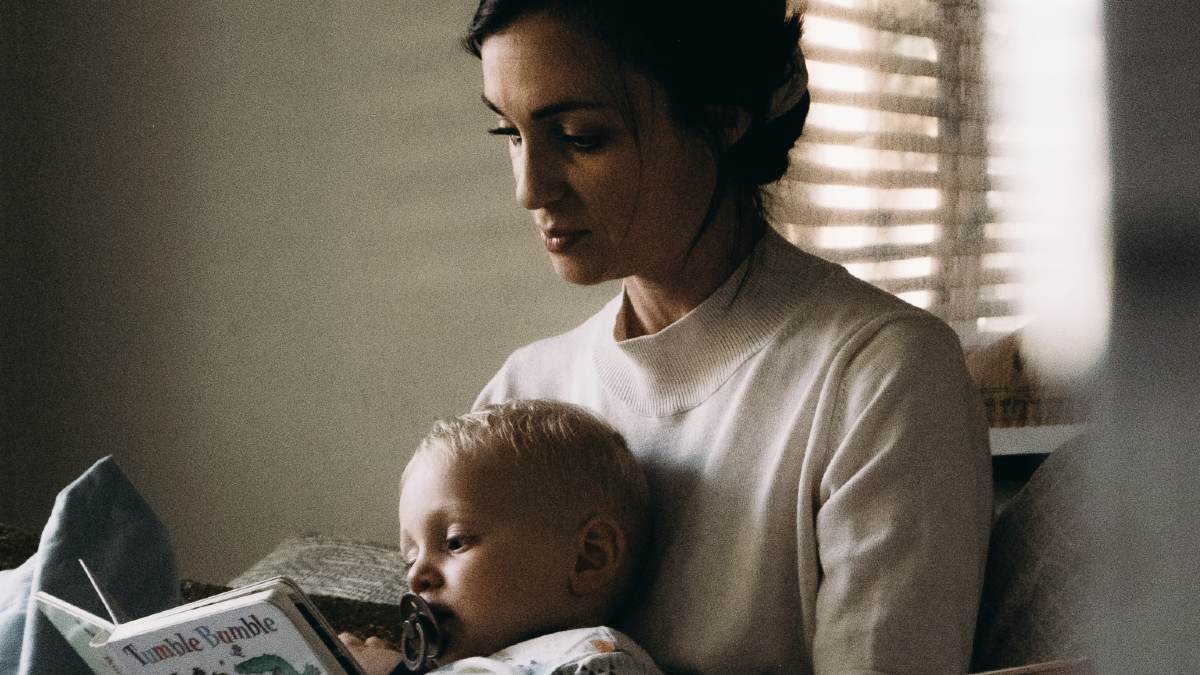
Why Some Mothers 'Gatekeep' The Parental Involvement Of Fathers
Research reveals why the notion of 'mother knows best' can be a barrier for some fathers.

By Mark Travers, Ph.D. | February 27, 2024
"Maternal gatekeeping" refers to behaviors and attitudes of mothers that restrict or control the involvement of fathers or other caregivers in parenting tasks and decision-making. Mothers may unintentionally or intentionally inhibit the father's participation in responsibilities such as feeding, bathing or disciplining children, thereby controlling when the "gate" to contributing to their child's life opens and closes.
"Gate closing" can involve criticism of the father's parenting abilities, reluctance to delegate tasks or micromanagement of childcare activities while "gate opening" includes encouraging and expressing confidence in paternal participation, such as seeking the father's advice in child-rearing decisions or creating opportunities for father-child bonding.
Notwithstanding instances of paternal abuse or neglect, maternal gatekeeping negatively impacts children, parenting partnerships and overall family dynamics as it is associated with lower quality and quantity of paternal involvement. Gate opening, on the other hand, is associated with higher levels of paternal involvement in childcare, which benefits the child.
Here are three reasons why maternal gatekeeping occurs, according to research.
1. Insecure Attachment Orientations
A 2023 study of expecting couples found that "insecure" attachment styles, particularly higher levels of attachment anxiety and avoidance play a significant role in maternal gatekeeping.
Individuals with anxious attachment styles tend to be hyper-vigilant about relationships, often worrying about abandonment or rejection, seeking constant reassurance and facing difficulty trusting their partners.
Individuals with avoidant attachment styles tend to value independence and self-reliance in relationships and avoid getting too attached to others to protect themselves from potential hurt or disappointment.
Researchers found that higher levels of attachment anxiety in mothers predicted higher gate closing and discouraging behaviors towards fathers. Moreover, fathers with highly avoidant and anxious attachment styles reported less gate opening and caregiving encouragement from their partners.
"Mothers who are highly anxious report that they receive less support from their partners across the transition to parenthood and highly avoidant fathers report that they provide less support to their partners," the researchers explain.
Anxiously attached mothers may gate close more, possibly driven by a desire to avoid abandonment and protect their precious relationship with their child. Additionally, highly avoidant fathers may be prone to perceiving distance in their co-parenting relationships, which mothers could view as a "parenting red flag."
2. Traditional Gender Role Ideology
Research suggests that traditional beliefs about gender roles contribute to maternal gatekeeping by reinforcing notions that mothers are primarily responsible for caregiving.
"Whereas fathers' greater involvement in parenting may bring relief for overburdened mothers, it may also erode a sphere of influence that mothers have traditionally held over the home and family," state the researchers of the 2023 study.
Researcher Ruth Gaunt explains that for many women, particularly those with lower self-esteem, maternal responsibility serves as a crucial source of power, personal identity and validation in contrast to the lack of power and gender-based obstacles they face in other spheres of their life, such as inequality in the job market. The reluctance to share responsibility or relinquish control over childcare is possibly driven by the belief that paternal involvement threatens their unique maternal identity.
Furthermore, mothers who strongly identify with traditional gender roles and feminine stereotypes are more likely to resist sharing childcare responsibilities, as doing so challenges social perceptions of what it means to be a "good mother."
Similarly, fathers who "display the behaviors expected of their gender avoid participating in child care to affirm their masculine self," Gaunt explains.
However, research suggests that when both parents endorse more egalitarian views of gender roles, maternal gatekeeping tendencies reduce. Promoting more equitable parenting partnerships can positively impact families by alleviating the internal and external pressure on mothers to maintain sole responsibility for children.
3. Poor Parental Well-Being
A 2015 study found that maternal psychological characteristics and expectations influence gatekeeping behaviors. Researchers suggest that maternal gate closing is associated with perfectionistic parenting expectations from fathers.
Additionally, mothers gate close when fathers exhibit higher levels of negative emotionality, depression or neuroticism, which could be a protective response to unfavorable psychological characteristics. They may also gate-keep when their own psychological functioning is poor.
"Mothers with higher levels of neuroticism, anxiety and depression would be less able to regulate negative emotions in the context of stressful co-parenting experiences common to new parents and hence may more often close the gate," the researchers explain.
Further, mothers may evaluate a father's level of investment in the couple's relationship as an indicator of his commitment to parenting, which increases gate closing behavior when the relationship is viewed as less stable.
Expectant mothers' beliefs about their own parenting competence also influences gatekeeping. If they experience higher levels of parenting self-efficacy, they may gate close due to differences in fathers' approaches to childcare. Mothers may also question the skills of fathers and close the gate to them.
For those grappling with maternal gatekeeping, self-reflection on the origins of these tendencies is crucial. Embracing the vulnerability of receiving help and trusting others can foster healthier parental partnerships and empower fathers to play more active roles in caregiving. By challenging ingrained societal norms and fostering open communication, it is possible to promote the well-being of both parents and children.
Parenting is hard work no matter how you choose to do it. Take the Parental Burnout Assessment to test your levels of stress/resilience.
A similar version of this article can also be found on Forbes.com, here.
